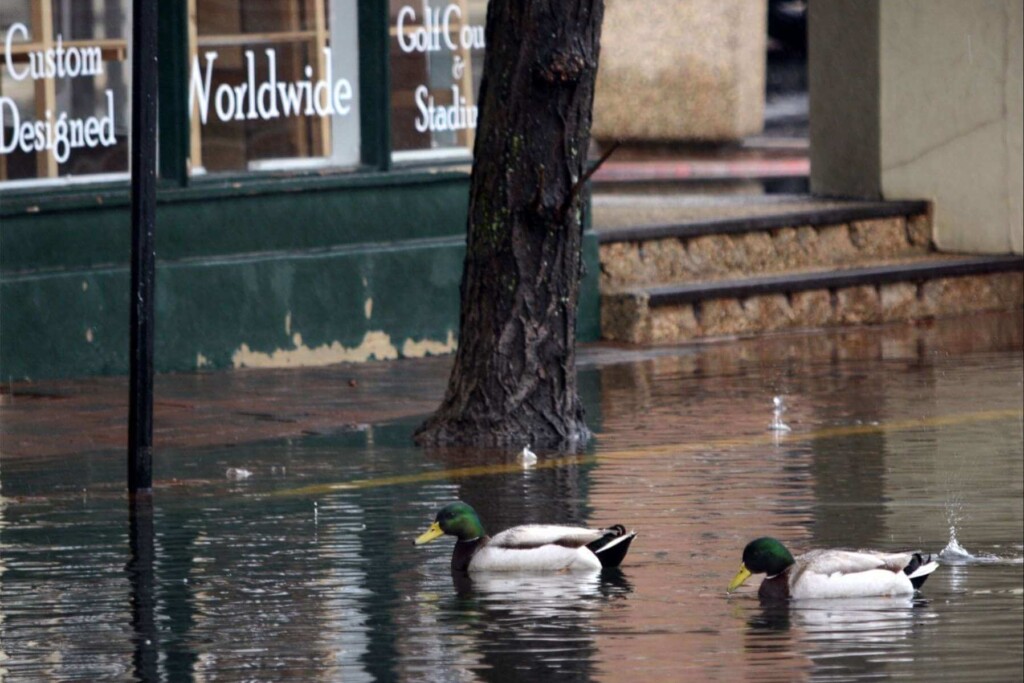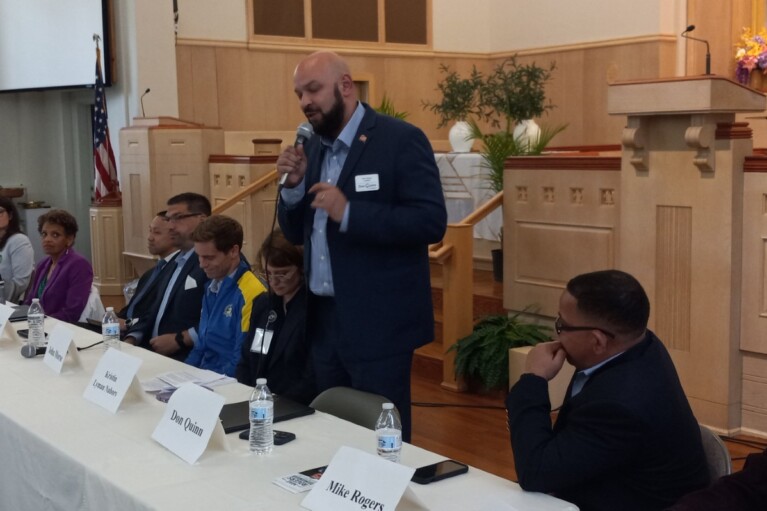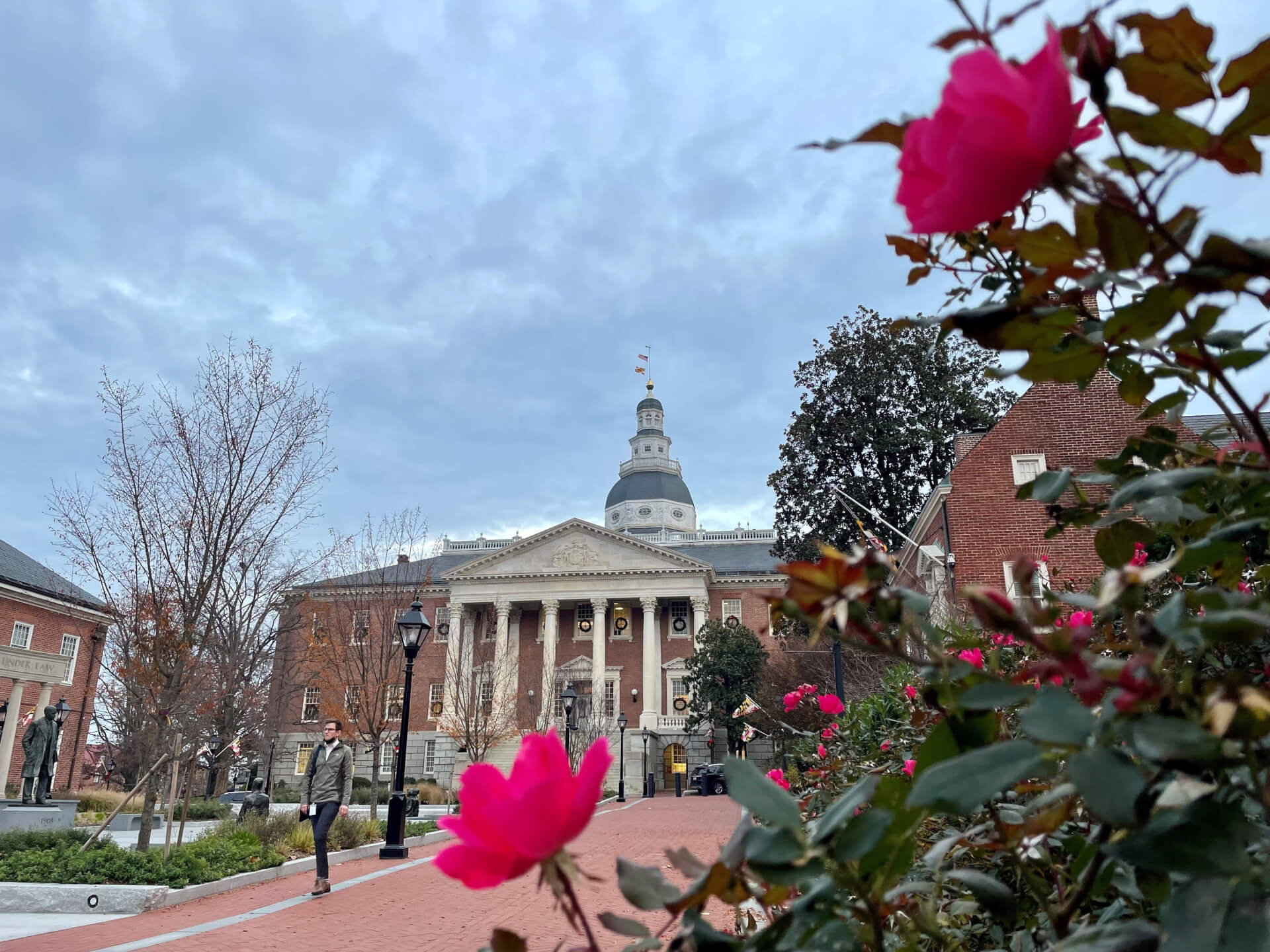One year after Climate Solutions Now Act, lawmakers focus on passing smaller climate bills

Offshore wind energy is getting most of the attention. The sector is growing rapidly nationally, and Gov. Wes Moore (D) traveled to an industrial development in Baltimore County Friday to sign a bill that could expand the industry in Maryland.
But beyond that legislation, Maryland lawmakers passed several bills in the recent General Assembly session designed to help the state respond to climate change.
They may not be of the scale of the Climate Solutions Now Act, the ambitious climate bill that lawmakers passed last year and that various state agencies are just beginning to implement. But they tackle climate change from different angles.
“Collectively speaking, the 2023 legislative session environmental achievements are extremely significant for Maryland’s air, land, water, and communities,” said Kim Coble, executive director of the Maryland League of Conservation Voters. “Importantly, many of the bills that passed are crucial both to implementation of the Climate Solutions Now Act and to Governor Moore’s pledge to achieve 100 percent clean energy by 2035.”
Coble said the 2023 session “marked a new day for Maryland,” with strong environmental leaders in the governor’s office and in key positions in the legislature.
“The environmental achievements of the 2023 legislative session remind us that if we want to achieve meaningful, lasting environmental victories, we need to elect conservation-minded candidates,” she said.
Along with the offshore wind bill, Moore on Friday signed legislation that should make it easier for Marylanders to buy electric trucks and that align the state with the toughest national goals for electric truck sales.
On Monday, Moore signed a bill to set up a “buy clean” program for state-funded construction projects and establishing a labeling system for the building sector that would measure materials’ impact on global warming.
Here are some of the other climate bills that have landed on the governor’s desk:
Beyond electric vehicles bills that Moore has signed, he has two other EV measures to consider, both from Del. David Fraser-Hidalgo (D-Montgomery). One, the Electric Vehicle Charging Reliability Act, would encourage the installation of EV charging stations in multifamily dwellings in underserved communities, while the other would allow drivers of EV’s to use high-occupancy-vehicle lanes on state highways and interstates, regardless of how many passengers are in the vehicle. Motorists could use the HOV’s if they obtain a permit from the state, which, as envisioned by the legislation, would cost no more than $20 a year.
Two bills from Sen. Sarah K. Elfreth (D-Anne Arundel) deal with land conservation. One, The Forest Conservation Act, sets stronger statewide forest cover and tree canopy goals, and gives local governments flexibility to design a forest retention strategy that meets their development priorities. The bill was sponsored in the House by Del. Sara Love (D-Montgomery).
The Maryland the Beautiful Act sets a conservation goal of 40% of Maryland lands permanently protected by 2040, while providing a plan and new tools to substantially and permanently protect key tracts of land throughout the state. The House bill, by Del. Dana Stein (D-Baltimore County), didn’t quite make it to the finish line.
Stein did, however, pass a measure to establish a greenspace equity program within the Maryland Department of Natural Resources, which would provide grants to projects that preserve, create and enhance community greenspace in low-income and underserved communities. The Senate version of the legislation, from Sen. Jim Rosapepe (D-Prince George’s), did not make it through the House.
Stein and Sen. Nancy J. King (D-Montgomery) also passed legislation to establish the Maryland Forestry Education Fund, which would provide education and resources to private owners of forestland, local forestry boards and local governments to promote healthy and sustainable forests.
Stein and Sen. Benjamin Brooks (D-Baltimore County) authored legislation to establish a Maryland Native Plants Program to encourage garden centers and nurseries to promote the planting of native vegetation, a modest effort to combat invasive plant species that are thriving due to warmer, more humid temperatures — and choking trees and forests throughout the state.
One of the most consequential climate bills passed this year, from Del. Luke Clippinger (D-Baltimore City), makes a pilot program promoting community solar projects a permanent program, requring that at least 40% of any community solar project is dedicated to serving low-income and moderate-income subscribers. The Senate bill, sponsored by Brooks, did not make it out of the House.
While a related priority of environmentalists that would have made the state’s EmPOWER program, which promotes the use of clean energy technology in housing, include greenhouse gas reduction goals fell apart on the last day of the legislative session, related legislation did get through. The bill — from Sen. Brian J. Feldman (D-Montgomery), chair of the Committee on Education, Energy and the Environment, and Del. Lorig Charkoudian (D-Montgomery) — requires the state Department of Housing and Community Development to meet certain targeted annual incremental energy savings when procuring electricity for subsidized housing residents.
Energy savings of a different sort was the object of a bill by Fraser-Hidalgo. It requires the Maryland Public Service Commission (PSC), which regulates utilities, to establish and implement the Maryland Energy Storage Program, to formulate and meet certain energy storage goals and develop energy storage systems in the state. The PSC is in the process of implementing a battery storage pilot project that the legislature authorized a few years ago. The Senate version of the energy storage bill, sponsored by Sen. Malcolm Augustine (D-Prince George’s), did not make it out of the House.
A bill from Del. Terri L. Hill (D-Howard) requires the state Department of General Services to establish and update standards for state owned, operated or renovated buildings to conserve energy and to minimize the adverse impacts of building construction and architecture on birds. The Senate version of the bill, from Sen. Clarence K. Lam (D-Howard), did not make it through.
Last but not least, a bill from Del. Vaughn Stewart (D-Montgomery) and Sen. Jack Bailey (R-St. Mary’s) establishes a new unit within the state attorney general’s office to investigate and prosecute cases against potential environmental crimes.
Moore has until May 30 to decide whether to sign these and all other bills, veto them, or let them become law without his signature.




 Creative Commons Attribution
Creative Commons Attribution